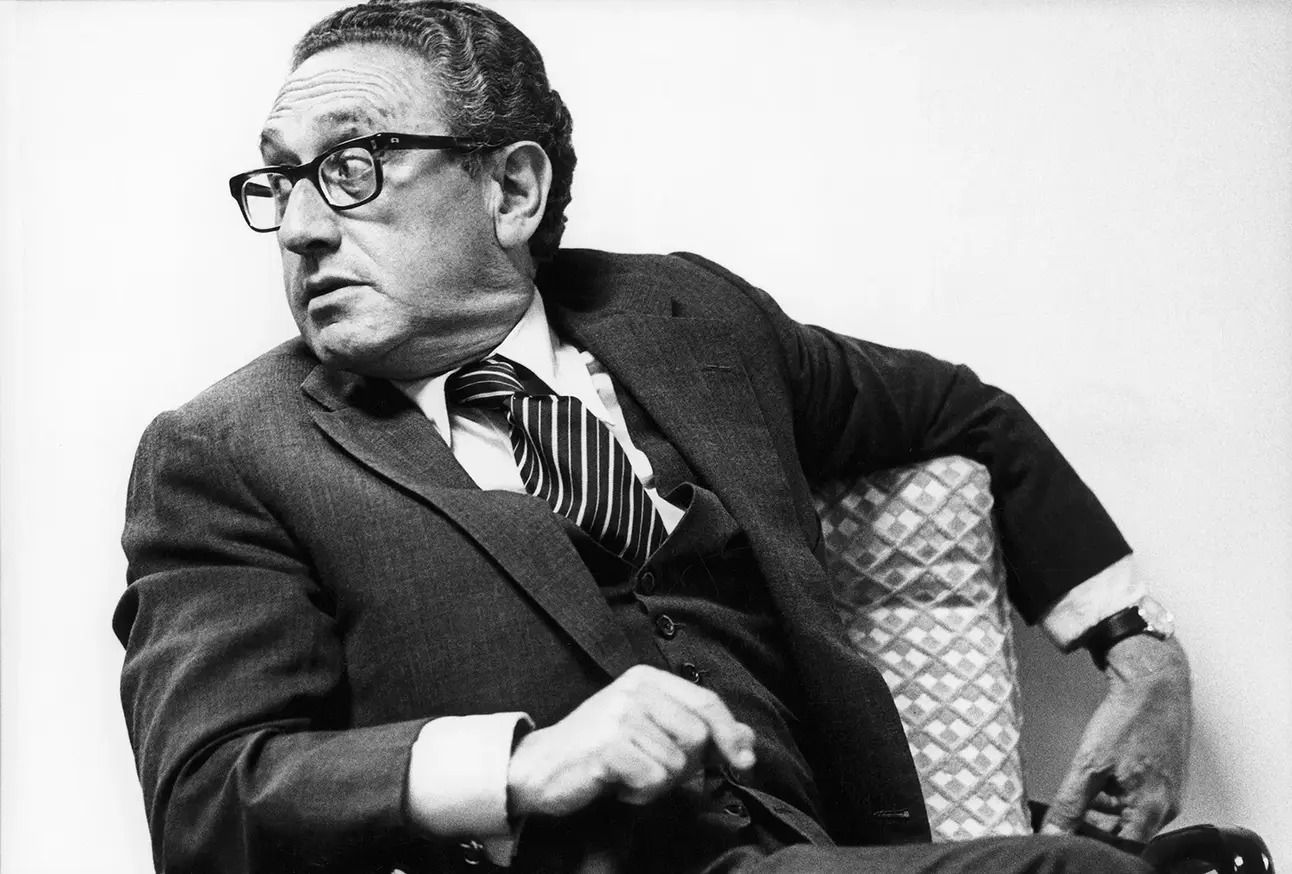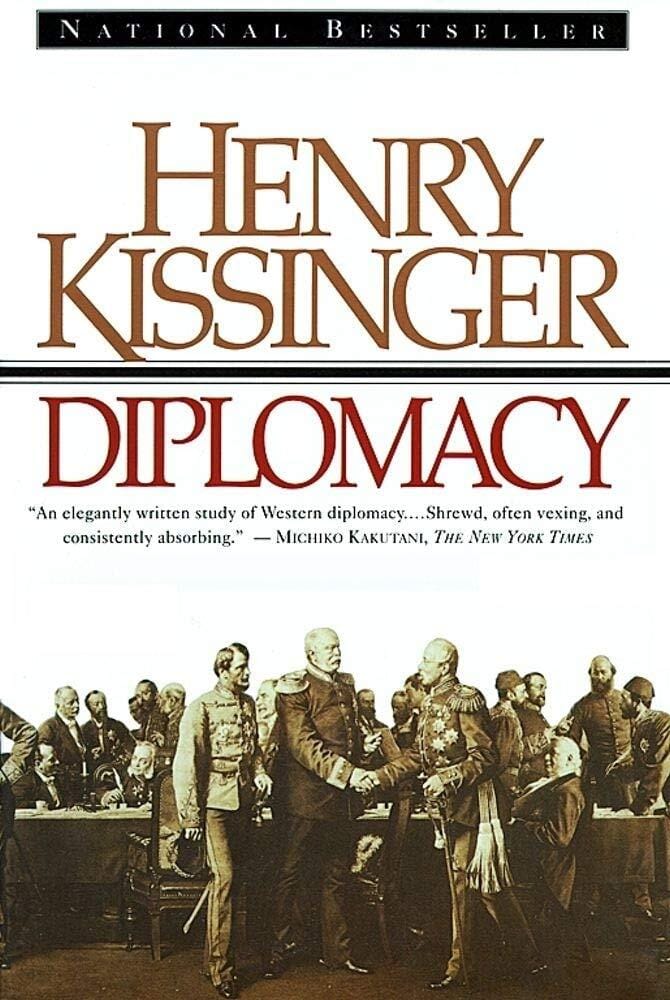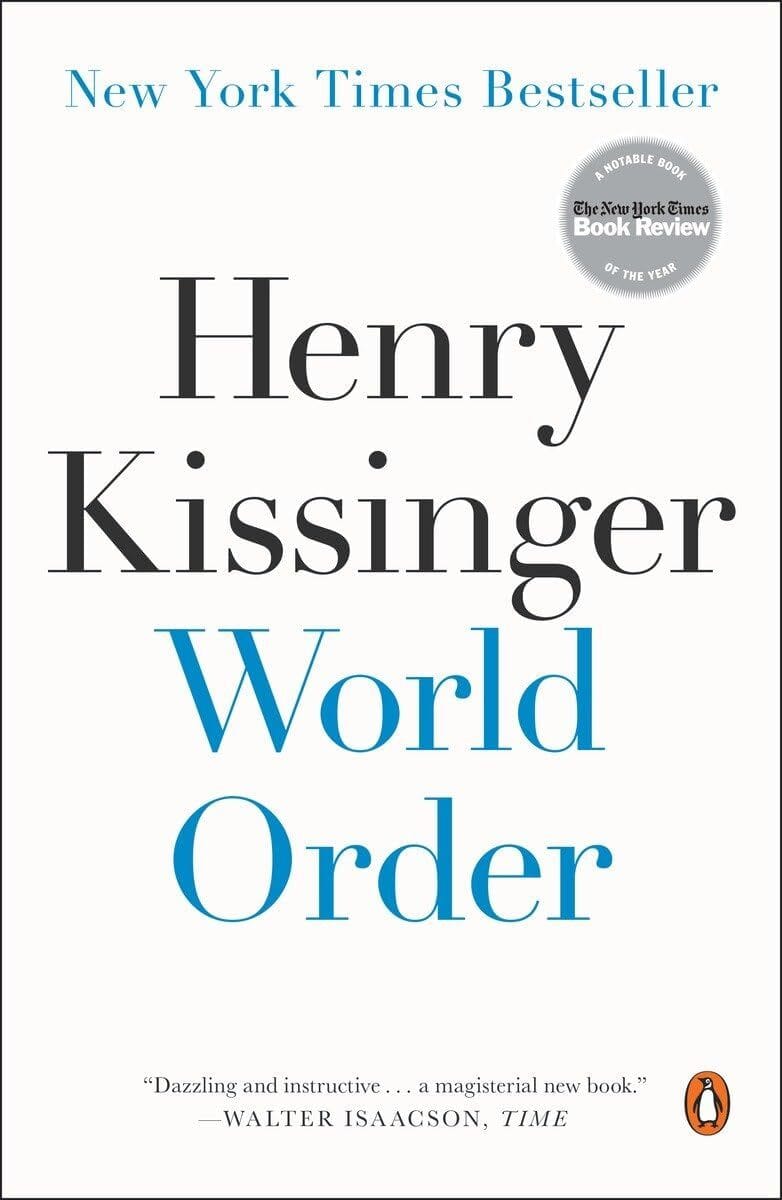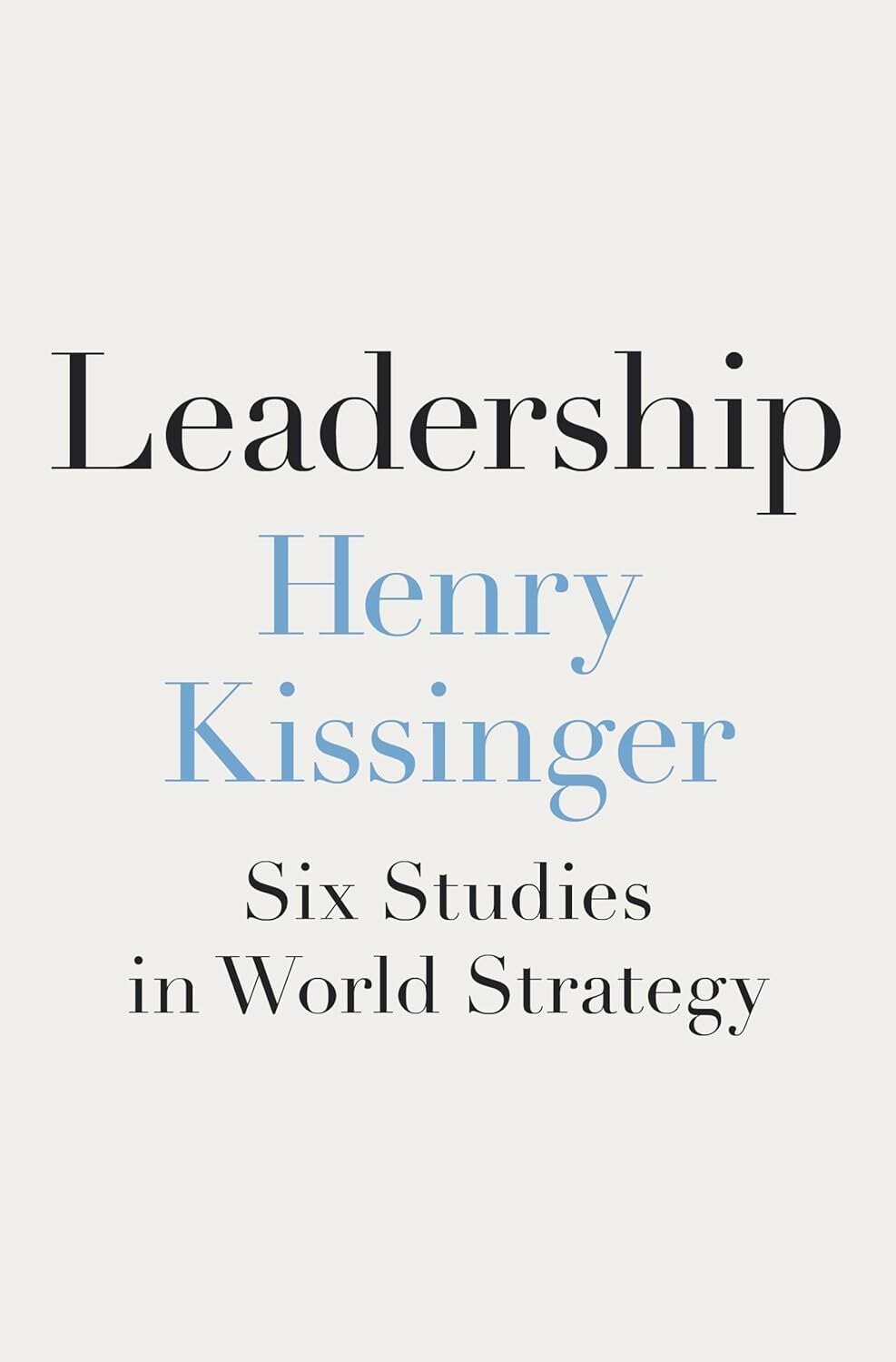- The Weekly Mensch
- Posts
- The Weekly Mensch: Henry Kissinger
The Weekly Mensch: Henry Kissinger
A life shaped by strategy, patience, and the quiet power of influence in a world that seldom waits
Us in a Nutshell
We are passionate about the lives, the impact, and the experience of Jewish baby boomers who have changed our world. From finance to the arts, we write about the stories of contemporary heroes who — significantly and meaningfully — changed the face of their respective industries, often starting with nothing but a legacy of exile. We tell their stories for the timeless lessons of intelligence, ethics, and resilience they underline. And we also share some fun anecdotes! Nathan Tob is a fourth-year student at the Queen Mary University of London. He studies Economics, Finance, and Management. Davy Sokolski is a third-year student at Columbia University in New York. He studies International Political Economy.
What is a Mensch?
Leo Rosten defines mensch as “someone to admire and emulate, someone of noble character.” Dr. Saul Levine writes in Psychology Today that a mensch’s personality characteristics include decency, wisdom, kindness, honesty, trustworthiness, respect, benevolence, compassion, and altruism.
Henry’s Rapid Bio

Credit: Foreign Policy
Heinz Alfred “Henry” Kissinger was born on May 27, 1923, in Fürth, Germany, to a Jewish family at a time when Nazi persecution was rising. His father, Louis, was a schoolteacher, and his mother, Paula, a homemaker. As anti-Semitic policies intensified, the Kissinger family fled to the United States in 1938, settling in Washington Heights, New York, a neighborhood that became home to many Jewish refugees. Kissinger, a shy and bookish teenager, quickly adapted to his new life but never lost touch with his heritage, later remarking that being a refugee had shaped his worldview profoundly.
After high school, Kissinger attended City College of New York while working in a shaving brush factory to help support his family. His education was interrupted in 1943, when he was drafted into the U.S. Army during World War II. Due to his fluency in German, he was assigned to military intelligence, where he played a critical role in counterintelligence operations, including hunting down Gestapo members and establishing civilian administration in occupied Germany. His wartime service, which earned him a Bronze Star, gave him firsthand insight into the dynamics of power, war, and diplomacy, an experience that would define his career.
After the war, Kissinger pursued higher education at Harvard University, earning his B.A. in 1950, M.A. in 1952, and Ph.D. in 1954. His groundbreaking doctoral thesis, which examined diplomacy and the balance of power in 19th-century Europe, introduced ideas that would shape his approach to realpolitik. He remained at Harvard as a professor, becoming a highly respected expert on nuclear strategy and foreign policy. His reputation as a brilliant strategist eventually caught the attention of politicians, leading him into government service.
Kissinger’s influence in global politics began in academia but quickly transitioned to government advisory roles. He became National Security Advisor in 1969 under President Richard Nixon and later served as Secretary of State from 1973 to 1977, continuing under Gerald Ford. He was a key architect of détente, a policy aimed at easing Cold War tensions between the U.S. and the Soviet Union, and played a pivotal role in opening diplomatic relations with China, reshaping global geopolitics. His secret negotiations with Zhou Enlai led to Nixon’s historic 1972 visit to Beijing, which fundamentally altered U.S.-China relations and remains one of the most significant diplomatic moves of the 20th century.
Kissinger was also instrumental in Middle East diplomacy, particularly in brokering peace efforts following the Yom Kippur War in 1973. His “shuttle diplomacy” between Israel and its Arab neighbors helped secure ceasefires and paved the way for long-term peace efforts, including agreements between Egypt and Israel. His role in negotiating the 1973 Paris Peace Accords earned him the Nobel Peace Prize, as he helped orchestrate an agreement to end U.S. involvement in the Vietnam War, though his legacy remains controversial due to ongoing conflicts in Southeast Asia.
Even after leaving government, Kissinger remained one of the most influential figures in global affairs. He founded Kissinger Associates, a global consulting firm, and continued advising U.S. presidents across party lines for decades. His books and speeches, often rooted in his belief in pragmatism over ideology, remained essential reading for policymakers worldwide. His influence extended far beyond the United States, as he remained an advisor to world leaders, corporate executives, and institutions shaping global economic and security policies.
Kissinger’s sharp mind and deep understanding of diplomacy made him a sought-after figure well into his 90s. He participated in international dialogues and offered counsel on modern geopolitical conflicts. In his later years, he reflected on his life and career with a mix of pragmatism and self-awareness, acknowledging both his successes and the controversies surrounding his decisions.
Henry Kissinger passed away on November 29, 2023, at the age of 100. His legacy is one of intellectual brilliance, strategic diplomacy, and enduring influence. He left an indelible mark on American foreign policy and global relations. Though divisive, his impact on history is undeniable, as few figures have shaped modern international relations as profoundly as he did.
Henry’s life lessons
1. Master the art of strategic patience
Henry Kissinger’s success in diplomacy wasn’t built on quick wins or impulsive decisions—it was a masterclass in patience, timing, and long-term thinking. One of his most defining moments came with the opening of U.S.-China relations in the early 1970s. For decades, the two nations had been locked in hostility, with no formal diplomatic ties. While many in Washington viewed China as an untouchable adversary, Kissinger saw a strategic opportunity—one that required subtlety and restraint. Rather than force a breakthrough, he orchestrated a series of secret negotiations with Chinese Premier Zhou Enlai. His backchannel diplomacy demanded deep understanding, deliberate pacing, and a willingness to wait for the right moment. The result: President Nixon’s historic visit to China in 1972, a move that reshaped global geopolitics and altered the Cold War’s power dynamics. Kissinger’s philosophy was simple yet profound: “The task of the leader is to get his people from where they are to where they have not been.” He knew that influence isn’t just about making the right decisions—it’s about knowing exactly when to make them. From détente with the Soviet Union to peace talks in the Middle East, he applied the same principle time and again.
Great outcomes require not just action, but timing. Kissinger’s legacy is a reminder that rushing big decisions often leads to failure. True success lies in knowing when to act—and when to wait. Whether you're brokering a deal, navigating a career, or managing high-stakes situations, thinking in decades instead of days creates space for lasting impact. Strategic patience isn’t passivity—it’s disciplined preparation, deep understanding, and the ability to strike when the moment is right.
2. Influence is earned through knowledge, not noise
Henry Kissinger didn’t become one of the most influential diplomats of the 20th century by being the loudest in the room—he did it by being the most prepared, insightful, and strategically informed. In an era where political clout often came from bold statements and public showmanship, Kissinger’s power stemmed from meticulous study and intellectual depth. He immersed himself in history, analyzed geopolitical dynamics, and developed a profound understanding of global leaders long before entering negotiations. A defining example came during the 1973 Yom Kippur War. As conflict erupted in the Middle East, many pushed for immediate intervention. But Kissinger relied on what he knew best—deep strategy. Through “shuttle diplomacy,” he traveled tirelessly between Jerusalem, Cairo, and Damascus, applying his grasp of regional complexities to broker a ceasefire and lay the groundwork for future peace. His approach reflected his belief that “The real distinction is between those who adapt their purposes to reality and those who seek to mold reality in the light of their purposes.” Kissinger’s strength wasn’t volume—it was clarity. He shaped outcomes not through dominance, but through knowledge.
In any field, real influence comes from depth, not display. Kissinger’s career is a powerful reminder that substance outlasts spectacle. It’s not the loudest voice that commands respect—it’s the most informed one. Those who invest in preparation, understand complexity, and lead with insight ultimately shape the decisions that matter. Influence isn’t about noise—it’s about knowing what others don’t, and using it wisely.
3. Control the game, even if you don’t control the board
Henry Kissinger understood that true power doesn’t mean having control over everything—it means knowing what levers to pull when full control isn’t possible. As a diplomat operating within volatile global dynamics, he knew that leaders, wars, and economic shifts were often beyond his command. Yet, he consistently found ways to influence outcomes and shape history. Whether dealing with Cold War tensions, Middle East peace, or U.S.-China relations, Kissinger didn’t fixate on what he couldn’t change. Instead, he focused on what he could leverage. A defining example came in 1971, when he arranged a secret visit to Beijing. With China isolated and Soviet tensions escalating, he couldn’t control the Soviets—but he could shift the balance by opening a new front. His quiet diplomacy ultimately led to Nixon’s historic visit and a recalibration of global alliances. Kissinger’s genius lay in playing the long game—repositioning the pieces on the board without needing to command every one of them. As he once said, “Accept everything about yourself—I mean everything. You are you, and that is the beginning and the end—no apologies, no regrets.” He didn’t dwell on constraints—he mastered the art of maneuvering within them.
You don’t need full control to make an impact—you need strategic leverage. Life and leadership rarely offer total control. But those who thrive learn to shape outcomes by focusing on the forces they can influence. Kissinger’s legacy teaches us that progress often comes from mastering the margins—identifying pressure points, moving first, and shaping the narrative even when the board seems stacked. Strategy isn’t about domination—it’s about knowing where your real power lies.
The Quote of The Week
“The task of the leader is to get his people from where they are to where they have not been”
More About Henry
 Diplomacy (1994) |  World Order (2014) |  Leadership (2022) |
Reply